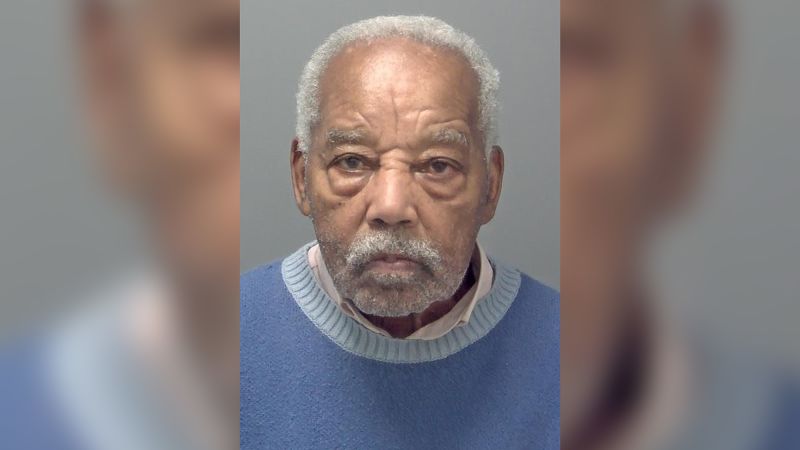A 92-year-old British man has been convicted of murder and rape on Monday, a verdict that brought an end to a cold case that remained unsolved for 58 years.
Ryland Headley was found guilty by the Bristol Crown Court in England of the rape and murder of Louisa Dunne, who was 75 years old when Headley killed her.
Dunne was found dead in her home in Easton, in the suburbs of Bristol, in June 1967. The police determined at the time that she had been raped and died of strangulation and asphyxiation.
The local constabulary launched a major investigation: they took palmprints from 19,000 men, collected 1,300 statements and made more than 8,000 house-to-house calls, the Avon and Somerset Police said in a statement on Monday.
Yet none of it led anywhere, and the case went cold.
It wasn’t until the police began reviewing the case in 2023 that investigators were able to get a full DNA profile of Dunne’s killer from the skirt she was wearing when she died – using technology that was not available at the time of the crime.
That DNA profile was then matched with samples taken from Headley following his arrest for two rapes in 1977, leading to his arrest in November 2024.
“For 58 years, this appalling crime went unsolved and Ryland Headley, the man we now know is responsible, avoided justice,” Crown Prosecuting Solicitor Charlotte Ream said in a statement by the Crown Prosecution Service (CPS).
Headley denied committing the offences, according to the CPS.
A partial handprint found at the scene was also re-examined as part of the case review, the CPS said. The print of a part of a palm, between the wrist and the base of the little finger, was discovered on a window at the back of Dunne’s house and was matched to Headley’s hand by four experts.
“Headley never featured in (the) original investigation as he lived outside the area where the house-to-house enquiries were carried out,” senior investigating officer with the Avon and Somerset police, Detective Inspector Dave Marchant, said in a statement.
Marchant said the “extensive and meticulous work” that was done by the officers in the initial investigation paved the way for the police to solve the crime. He said that as part of the re-investigation, 20 boxes of original material were reviewed by the police.
The CPS said that all but one witness in the case have died over the nearly six decades since the crime was committed, but that old statements were read in court as part of the trial.
Headley will be sentenced on Tuesday. Ream said he “faces the prospect of spending the rest of his life in prison.”
The CPS said that Headley’s other offenses were also considered during the trial. While earlier convictions are not automatically admissible in courts in England, the CPS said that the similarities between the Dunne murder and rape and Headley’s two previous convictions for rape were “too great to ignore.”
The CPS said Headley was convicted after pleading guilty of breaking into the homes of two elderly women in Ipswich and raping them. One of the women was in her seventies and the other in her eighties. Their accounts of the attacks to the police at the time were read out to the court.
He was initially sentenced to life imprisonment, but this was reduced following an appeal to a seven-year jail term.
Ream said the verdict on Monday was a “demonstration of the commitment of the CPS, and our partners in the police, to relentlessly pursue justice for the victims of crime, no matter how many years – or decades – have passed.”
But advocacy groups say rape convictions remain low in the UK and the justice process is incredibly slow.
TheOffice for National Statisticssays 71,227 rapes were recorded by police in 2024. According toRape Crisis, a UK charity, just 2.7% of these cases resulted in charges being brought by the end of 2024.
Officialgovernment datashows that it currently takes on average 344 days for the police to charge the suspected offender, 30 days for the CPS to authorise the charge, and 336 days for the court to complete the case.
